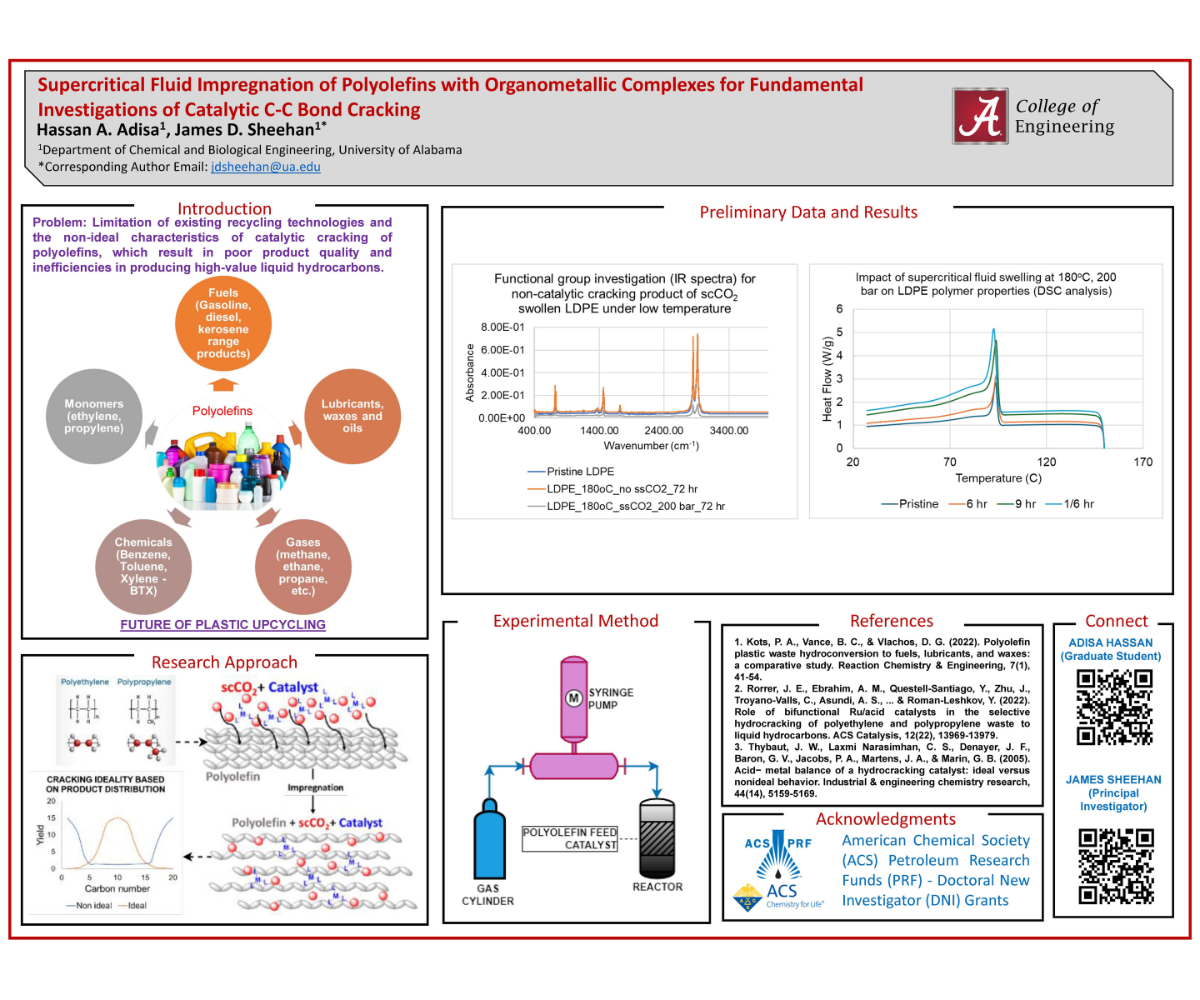
The challenge of plastic waste management has intensified globally due to the non-biodegradable nature and fossil-based origin of most plastics. This research presented explores a novel approach to plastic upcycling through ideal catalytic cracking, with a focus on greener reaction conditions, such as supercritical CO₂ (scCO₂) processing. Catalytic cracking of alkanes proceeds through monomolecular and bimolecular mechanisms comprised of C-C cleavage (e.g., β-scission), isomerization, and alkylation pathways that facilitate production of branched hydrocarbons with symmetric product distributions (i.e., ideal cracking). However, catalytic cracking of polyolefins demonstrates primarily monomolecular C-C cleavages leading to production of unbranched, permanent gases (i.e., non-ideal cracking). Monomolecular cracking of polyolefins is facilitated by diffusional constraints of polymer chains adsorbed on heterogeneous catalysts, which limits access to reactive intermediates and active sites. As such, fundamental insights on ideal cracking of polyolefins are limited. The lack of fundamental insights on catalytic cracking of polyolefins precludes advancements in the deconstruction of linear alkane polymers into branched hydrocarbons. The focus of the presented research is leveraging supercritical carbon dioxide to swell and plasticize polyolefins, impregnate metal triflate catalysts into polymer matrices, and evaluate fundamental reactions of catalytic cracking of scCO2-swollen polymers. The central hypothesis of the research is that amorphizing polyolefin matrices by scCO2 swelling will enhance polymer chain mobility and dispersion of impregnated organometallic catalysts, which in tandem, will promote ideal catalytic cracking. The rationale that underlies the proposed research is that scCO2 can increase the free volume of polyolefins, amorphize the polymer matrix, and partition metal triflates into polymer matrices, which will promote mobility of polymer chains, reactant accessibility to catalysts, and ideal catalytic cracking of polyolefins into branched hydrocarbons. By pioneering an ideal catalytic cracking process for polyolefins, the research discussed has the potential to revolutionize plastic waste management, offering a sustainable solution that aligns with global carbon reduction goals.